Can Birds Predict “Fowl” Weather?
Our ancestors observed bird behavior to predict the weather. How many of these old sayings about feathered forecasters, plucked from folklore, do you know?
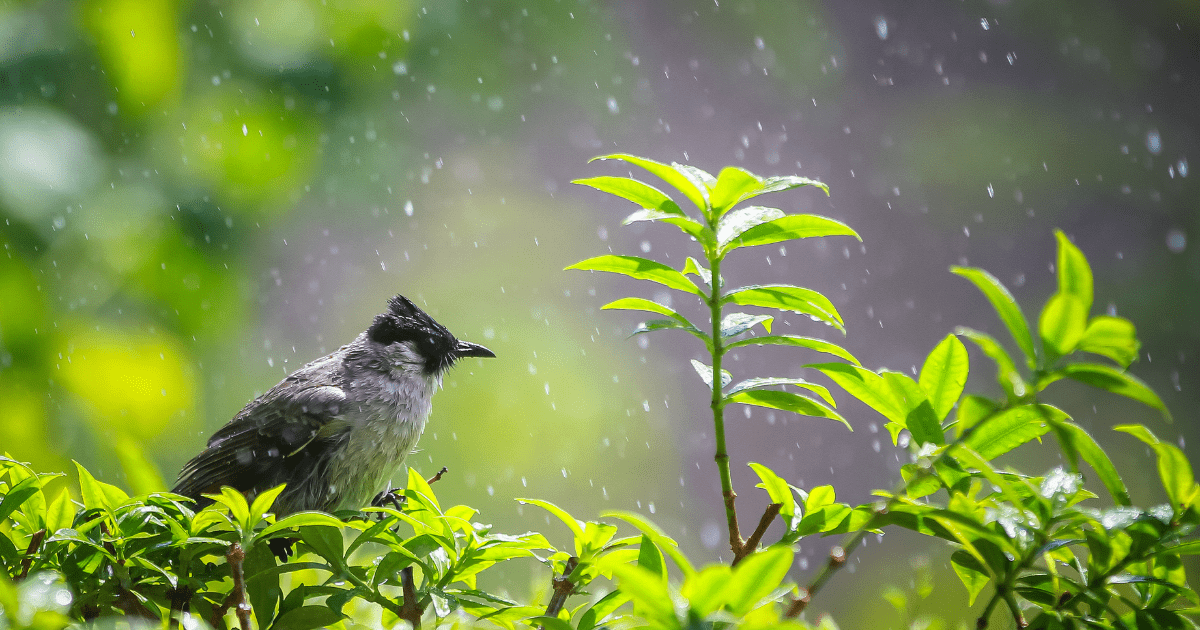
Before we had weather apps, Doppler radar, or the National Weather Service, people paid close attention to what was happening in nature—everything from the thickness of onion skins to the shape of clouds in the sky—to predict the type of weather to come so they could prepare. They also looked, more specifically, to animals and their behavior. For example, early settlers would observe the thickness of animals’ coats and their nesting habits to determine how rough or mild the upcoming winter would be. Of these animals, birds and what they were up to was very telling, and produced a flock of folklore sayings. Check it out!
Roosters
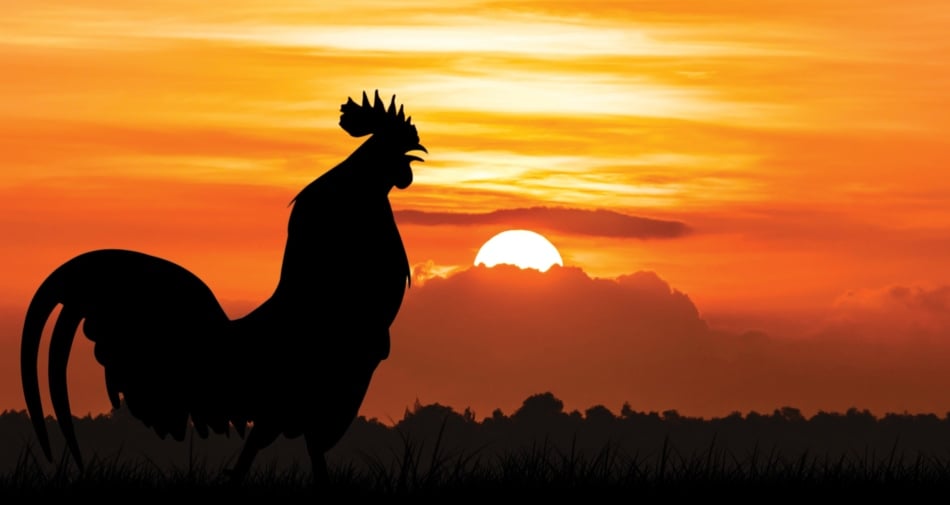
Around the farm, roosters and hens gave clues into the weather:
If the rooster crows on going to bed,
You may rise with a watery head.
Also written as,
If a rooster crows at night, there will be rain by morning.
People have observed that an approaching storm makes birds restless. And it was believed when a rooster can’t rest, he tends to crow more.
Wild Birds
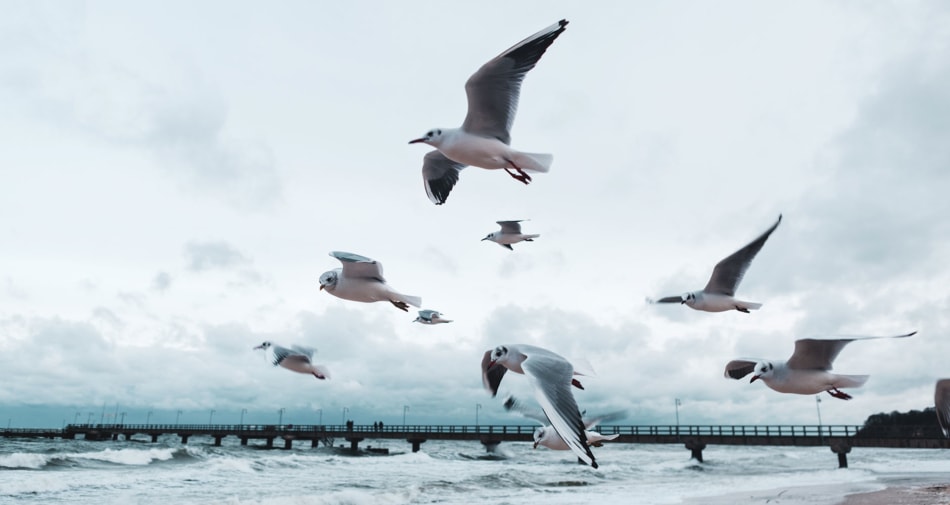
There are other observations about wild bird behavior:
If birds fly low, expect rain and a blow.
Or If birds fly low, then rain we shall know.
A drop in air pressure causes air to become “heavier,” making it difficult for birds to fly at higher altitudes. When birds fly low in the sky, you can be certain a weather system is approaching. This is because bad weather is associated with low pressure. The arrival of low pressure can also cause certain birds to hunt for insects that are flying lower to the ground for the same “heavy air” reason. This proverb doesn’t only apply to heavy precipitation and wind – oncoming winter weather can also cause birds to fly low.
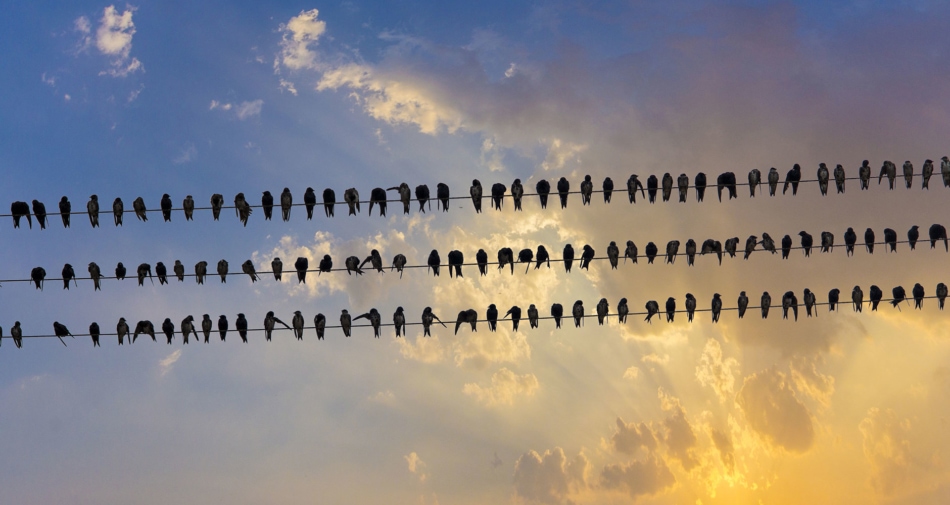
Birds on a telephone wire predict the coming of rain.
This old saying is often disputed. While birds in migration will often “stop over” in an area to wait out a bad storm in their path, there’s no real evidence that birds just resting on a wire indicate any sort of bad weather approaching. But if you notice a sudden increase in the number of birds in your town — whether they’re on telephone wires or not — it could mean that a downpour is on the way.
Read: How Do Animals Stay Safe In Extreme Weather?
More Feathered Forecasters
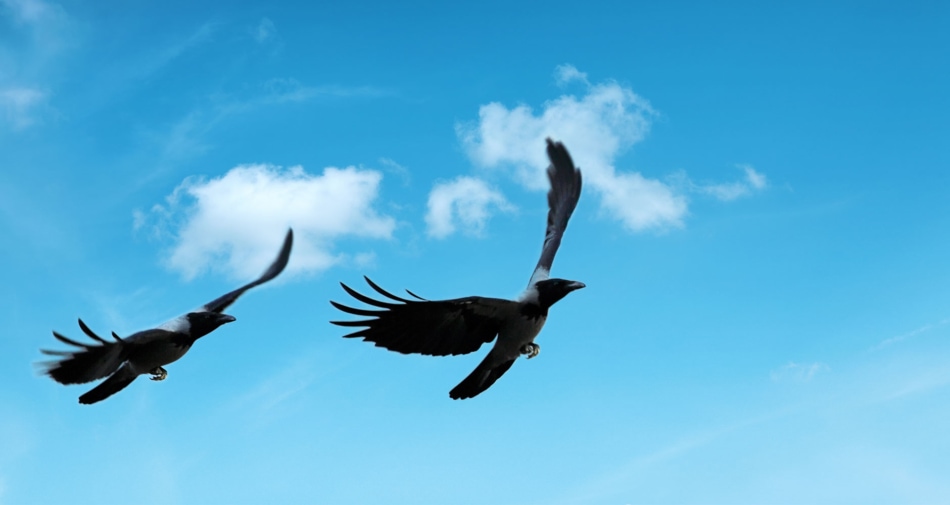
Below are some additional observations about feathered forecasters:
- One crow flying alone is a sign of foul weather; but if crows fly in pairs, expect fine weather.
- If crows fly south, a severe winter may be expected; if they fly north, the reverse.
- When chickens pick up small stones and pebbles and are more noisy than usual, expect rain.
- Roosters are said to clap their wings in an unusual manner, and hens rub in the dust and seem very uneasy when rain is coming.
- During rain if chickens pay no attention to it, you may expect a continued rain; if they run to shelter, it won’t last long. (You would think the opposite is true!)
- When fowls collect together and pick or straighten their feathers, expect a change of weather.
- The severity of winter is determined by how far down the feathers have grown on a partridge’s legs.
- Barred owls calling late into the fall signal a rough winter.
While many of us in the 21st century may think weather lore is more whimsical than wise, it’s hard to discount all of these “natural forecasters,” especially when most of them are based on years of observation.
This article was published by the Staff at FarmersAlmanac.com. Any questions? Contact us at [email protected].


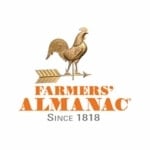


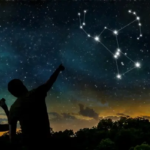
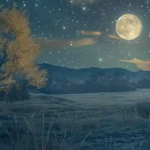
In middle Tennessee, we have what’s called a “Rain Crow” which is actually an American Cuckoo. When you hear them make their dovelike call during the day, it is supposed to predict rain. Over the years, I have seen them to be fairly reliable, but not completely.
My Grandaddy always said hearing a raincrow means a death in the family,he would tell us to take off our right shoe and turn it over till raincrow stops,that warted away death.
Sounds like your granddaddy was an optimist. Mine always accused them of eating his grapes and shot them.
If there is much cicadæ song in summertime, expect an icy winter freeze. Cicadae life cycle provides forests pruning. Check it out!
I live in a small city and don’t have access to farm fowl. How can I check to predict the weather?
Hi Susan, as you saw in the story, there are many other winged creatures to watch (according to folklore). One of the subheadings in the story is “Wild Birds” so much more than farm animals!
Mom and Dad said if the birds flock together early fall then winter won’t be far to come.
My grandpa always said to watch the fog moving along the mountain, if it was going veritically up the mountain, we would have more rain. If it was moving horizontal along mountain, the rain was over.
Around my home it is the barn swallows that are a perfect example. They are usually flying high in the skies and you really do not see them out catching their bugs. But you can depend on rain if they are feeding low. The bugs fly much closer to the ground so they are having to chase them lower to eat. And it is like a feeding frenzy you can almost touch..There is always rain by the next day when I see this happen.
Heard all my life that animals are dumb…..well, my friend, we CAN learn a LOT by watching and heeding to their ways…I do….and I continue to tell my grand ( great grand) children to watch and learn……
so sad to hear, animals are so much smarter and perceptive than we think. My dogs ears used to perk up when I was about 5 miles from home, he knew the sound of my car it seemed
Grandpa taught me a lot about watching nature and animals to predict the weather. These are new for me and I will certaonly start listening to what my chickens have been trying to tell me.
I believe that animals can tell us a lot about the weather and other events if we just watch them closely and ‘listen’ to what they’re saying. I enjoyed this article.
my dad swore by the almanac.